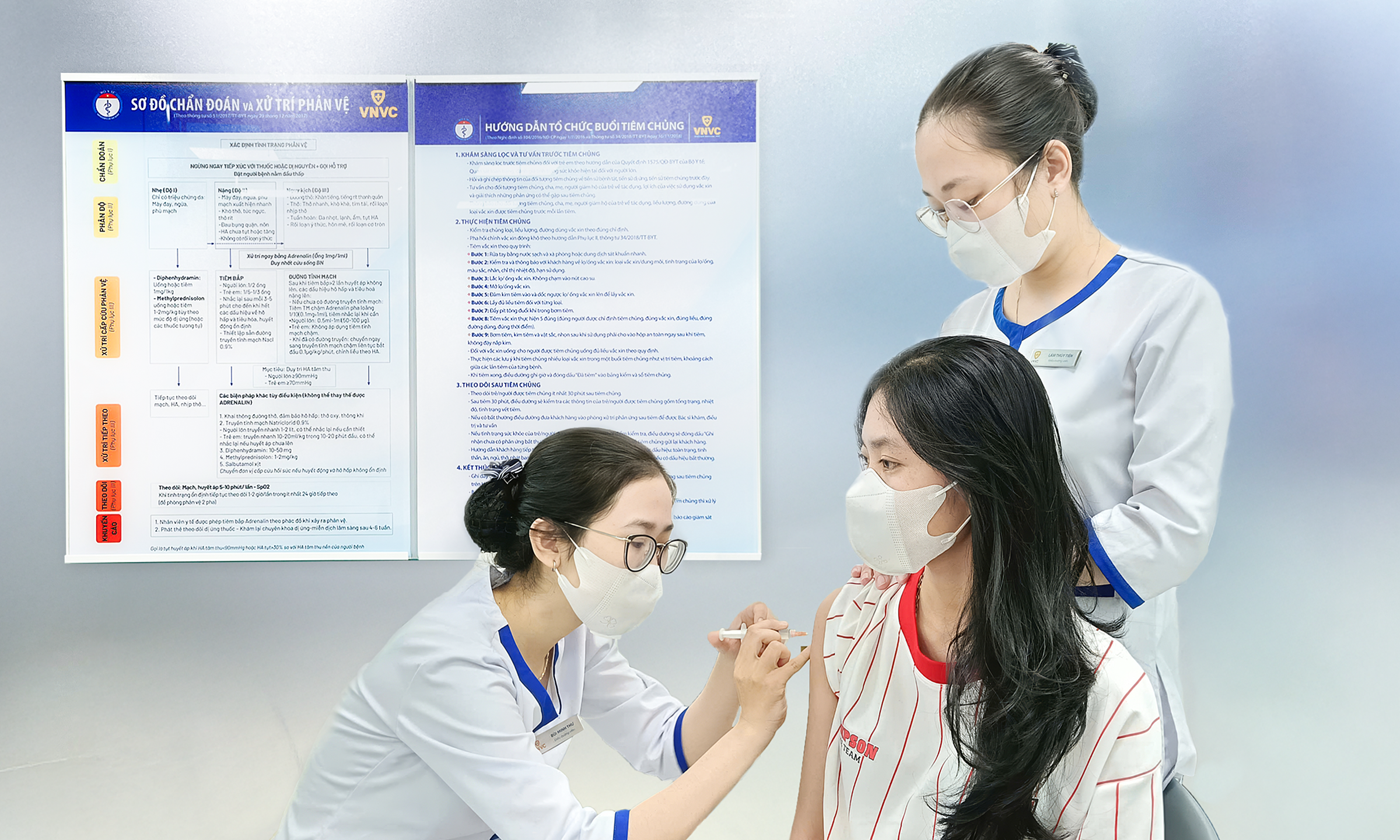Dr. Tran Huynh Tan, Medical Manager of the VNVC Vaccination System, explains that hepatitis B has both acute and chronic forms. The disease can silently progress to chronic hepatitis, cirrhosis, liver failure, and liver cancer. However, many people still misunderstand the disease, leading to complacency in prevention or incorrect preventative measures. Dr. Tan outlines these misconceptions and how to prevent hepatitis B:
 |
A doctor examines a patient with severe hepatitis. Photo: Chi Le |
Only people with jaundice have hepatitis B.
According to Dr. Tan, many patients newly infected with the hepatitis B virus or those with the chronic form may not exhibit typical symptoms. The disease usually manifests in its severe stages or after about 2-3 months of acute infection with symptoms such as: yellowing of the skin and eyes, dark urine, fatigue, nausea, vomiting, muscle and joint pain, abdominal pain, loss of appetite, pain in the liver area, and fever. Therefore, jaundice alone cannot diagnose hepatitis B.
Besides hepatitis B, many other conditions can cause jaundice, such as yellow fever, biliary atresia, and thalassemia (inherited blood disorder). If experiencing jaundice, individuals should seek medical attention and undergo testing for proper diagnosis and treatment. People should not self-diagnose or use traditional remedies to avoid misdiagnosis, delayed treatment, and disease progression.
Inactive hepatitis B carriers do not spread the disease.
Dr. Tan explains that individuals infected with the virus but without liver cell damage and normal liver enzyme tests are considered inactive carriers. However, the disease doesn't remain inactive indefinitely. The virus can reactivate and cause illness at any time, especially when the immune system is weakened. Inactive carriers can still transmit the virus to others.
"Many people remain complacent and don't undergo regular check-ups, leading to severe disease progression. Furthermore, the misconception that inactive carriers are not contagious leads to a lack of preventive measures during sexual activity and childbirth, resulting in disease transmission," says Dr. Tan.
Abstaining from sex prevents infection.
Sexual intercourse is a common route of hepatitis B transmission among adults, especially for those with multiple partners or who do not use protection. However, it is not the only route.
Dr. Tan cautions that believing abstaining from sex prevents hepatitis B infection can lead people to overlook other transmission routes. In Vietnam, the primary route is mother-to-child transmission. 90-95% of infants born to mothers with hepatitis B will become infected if appropriate preventive measures are not taken. Additionally, some families have multiple members infected due to contact with the infected person's blood during daily life.
 |
People receive the hepatitis B vaccine at the VNVC vaccination center. Photo: Khanh Hoa |
Testing is not necessary before vaccination.
Dr. Tan addresses the common question about pre-vaccination testing for hepatitis B, emphasizing its necessity. The vaccine is ineffective in individuals already infected with hepatitis B.
Moreover, skipping pre-vaccination testing can lead to complacency and a lack of awareness of existing infection, hindering timely treatment. Conversely, testing reveals antibody levels. If antibodies are absent or below protective levels, vaccination is necessary to boost immunity.
How to prevent hepatitis B correctly?
Currently, there is no specific cure for hepatitis B. Dr. Tan states that vaccination is the most effective preventive measure. Vietnam offers various hepatitis B vaccines for children and adults, including the single-dose Heberbiovac HB (Cuba) and Gene Hbvax (Vietnam), and the combined Twinrix (Belgium), which also protects against hepatitis A.
Adults require three doses within 6 months, pre-vaccination hepatitis B testing, and booster shots when antibody levels decline. Children should receive the hepatitis B vaccine within 24 hours of birth, followed by the recommended schedule for vaccines containing the hepatitis B component, such as the 5-in-1 or 6-in-1 vaccines.
Additionally, people should adopt a healthy lifestyle, maintain a balanced diet rich in fruits and vegetables, drink plenty of water, avoid excessively spicy and hot foods, refrain from sharing personal items, avoid staying up late, and not smoke.
An Duong












